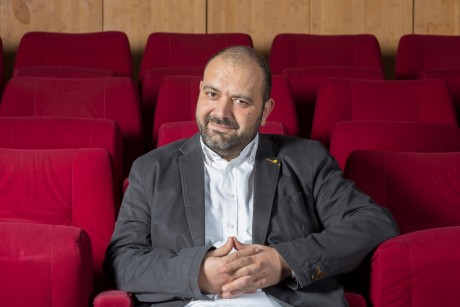


No Eastern European projects at IDFA Forum 2018

Here comes IDFA’s response to the question of no Eastern European projects in the selection of IDFA 2018’s Forum, sent today by the artistic director Orwa Nyrabia:
The fact that there are no East European projects in IDFA’s Forum 2018 selection is simply bad and sad. This needs to be examined and analyzed indeed. At IDFA we are examining how this happened and why it is such a surprising zero in the year’s projects slate. We also note that this is the selection of one year. The share of Eastern European projects over the past 15 years has been between 2 and 7 projects per edition, 3 to 4 most of the time. One year does not represent a trend. It might also be relevant here to say that our process was inclusive, that our pre-selectors and jurors were widely-representative are diversified. They did a difficult job and for that we are thankful. The selection process was long and as thorough as possible, but this doesn’t mean that we don’t make mistakes. We could have missed on great projects, it is our loss too.
Then, and no matter how many projects from Eastern Europe are in this year’s Forum selection, our long-term collaborations with Eastern European partners guarantee a continuous representation of Eastern European producers and filmmakers. East European funds, festivals, workshops and broadcasters are always part of what the Forum is. This makes us proud. In November, we will be there again, as usual, to assist Forum participants and observers from Eastern Europe, make the best of their time, even if their projects were not selected, or not submitted, anyway.
This “bad and sad” absence this year is, of course, a three-way matter. Meaning that IDFA’s own process is relevant, but not in any way more relevant than those it mediates between: The filmmakers – the offer, and The Industry – the demand. We clearly see a leaning from filmmakers towards local funding whenever possible. International co-production, as it stands today, is advantageous but has many downsides to the creative process. On the other hand, financiers and broadcasters are under a lot of pressure nowadays, and their choices as to how they can survive this difficult moment are not necessarily strategic and wise, these also need to be re-examined; the openness towards risk, the common understanding of “international appeal”, the facile assessment of the audience and of the industry’s responsibility towards it. Then, it might be necessary that we re-examine an overrated culture of packaging film projects, of seeing openly through the packaging, good or bad, into the core, the value of film. However, this will take years, less years than it took to spread the Leitkultur of formatted “proposal” and “pitch”. We are discussing these factors every day at IDFA, and working towards a wider Forum setup, a setup that has more and more to offer to each unique project, with every new edition. Not an easy challenge, it won’t be done in one year, but we take it very seriously.
Furthermore, IDFA is not only the Forum, the Forum is an important element in a larger view of the reality of documentary film around the world. We try hard to make it so. The number of Eastern European films in IDFA 2018 Program is amongst the highest compared to any other region. Eastern European filmmakers make 20% of Masters section, Helena Trestikova is the guest of honor of 2018, the festival big highlight is a tribute to the pioneering role of Vertov, the share of new generation Eastern European filmmakers in IDFAcademy is about 25%, and also, naturally, East European projects have their share among IBF-supported films, since the fund was established. A serious analysis of this view as a whole picture, trying to find the right questions and challenges within the context, is more necessary today than ever. The question of why here and not there is not only a question for IDFA, it is also a question to filmmakers and to the industry at large.
Finally, this issue is not limited to Eastern Europe… the world is big, and we are all the same. Seeing the universality of the problem might help all parties see a more objective view and by that, reach a wiser approach that would help everybody.
One last thing I would like to add: Please do keep on critiquing our work, we value that, we need it. We hope this critique would meet our sincere attempt to be helpful, rather than taking negative or aggressive forms, and especially rather than spreading unverified information. We are only trying, evaluating, then trying again.